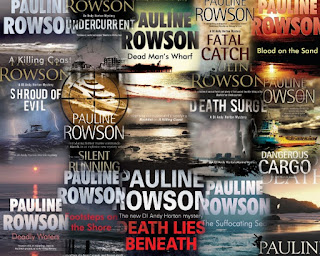Research, writing and ship recycling in Marvik Mystery Thriller LOST VOYAGE
My research for the Art Marvik mystery thriller 3, LOST VOYAGE took me into the murky waters of the ship recycling business.
"Plenty of action, I didn't want to put the book down. A good read for mystery thriller fans." Net Galley
Undercover investigator, Art Marvik faces a desperate battle to save others from a ruthless assassin who will stop at nothing in order to protect the secret of the Mary Jo’s last voyage from ever being exposed
In LOST VOYAGE, the Mary Jo, a salvage tug, went missing in 2003 on its way to Newfoundland where it was to tow an obsolete Russian cruise ship back to Britain for recycling. Some decades later someone claims to have found the Mary Jo locked in the Arctic ice, it is a claim that sparks a series of murders and Marvik’s mission for the UK’s Police National Intelligence Marine Squad is to discover the secret of the Mary Jo and why a ruthless assassin has embarked on a slaying spree to prevent it from being revealed.
What I gleaned about ship recycling for LOST VOYAGE mystery thriller
Ship recycling is centuries old. The fabric of a ship, wood in the past and steel today, has always held considerable value but ship recycling is a very complex, highly competitive business. It is also is a highly dangerous occupation, it’s not easy cutting apart steel structures and many ships contain toxic material such as plastics, asbestos and radioactive material. There is therefore also a cost to the environment. When it comes to where the ship is to be recycled there is also huge disparity between nations on what is and what is not allowed and safety regulations.Ships have always needed to be re-cycled even when they were made of wood. The Fighting Temeraire on her way to Beatson’s Yard, Rotherhithe to be broken up was painted by J.M.W. Turner.
The Fighting Temeraire was sold for five and a half thousand pounds and the copper alone was sold back to the Admiralty for three thousand pounds.
After the Second World War there were a huge number of steel war ships and cargo ships to be scrapped. Some were scrapped in Britain others in Italy and Japan but the focus began to shift to Tawain in the 1970s. However, after an explosion in Kaohsiung port in 1986 and a fire on board the tanker Canari which killed 14 people and injured 47 more there was a huge outcry and the ship recycling business shifted to Alang, a coastal town in the Indian state of Gujarat. It experienced its first major growth spurt in scrapping when the MV Kota Tenjung was beached on the 13 February 1983. By 1989 the number of employees in the ship scrapping business in Alang had reached forty thousand and Bangladesh and Pakistan followed suit.
The term recycling with regards to ships didn’t actually come into being until 1999.
Today they manage to reuse about ninety eight percent of the ship’s weight, recycling steel and other metals.The value of a ship at the end of its life is determined by its freight, if it has some on board, the sale and purchase market for ships if it is to be sold on to another shipping company, and the demand for scrap steel which is highest in the sub-continent where the labour market is cheap and there is less regulation. All of its fixtures and fittings would also have a value and therefore could be sold on to recoup the price paid for the vessel.
The secret of research when writing a crime novel, or indeed any novel, is not to show the research but to weave it into the story.
Obviously not all the above information is in LOST VOYAGE, indeed a great deal of it isn't but it is essential for the writer to know the background in order to build the story and make it credible. I find the research element fascinating. Not only do I learn a great deal from it but it also helps me to understand and flesh out my characters and sparks even more ideas for the plot line.
"The central plot is very engaging and Rowson ably keeps the reader guessing as to what really happened to the Mary Jo and why. I thoroughly enjoyed this book and it should appeal to most readers who like British crime stories with a strong regional feel." Net Galley
Buy LOST VOYAGE


Comments